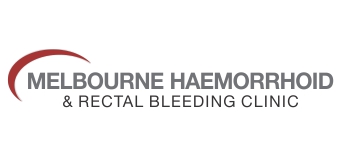Haemorrhoids
Haemorrhoids can be likened to varicose veins. That is clumps of vessels swell with any increase in pressure. Haemorrhoids occur equally in adult men and women – particularly during pregnancy. They are thought to be associated with a lack of fibre in the diet and the undue straining this causes.
Haemorrhoids cause problems because they:
- bleed
- protrude
- clot and become very painful
- may itch
There are other causes for all these types of symptoms and it is important that if you have any of these symptoms seek medical attention from a General Practitioner or Specialist in this field – called proctology.
As well as taking the history an examination of the area is compulsory.
The clinic provides early or urgent access to a group of Specialist Physicians or Surgeons who are experienced in this field and Specialists in the appropriate tests or procedures, which may be required.
An appropriate history and relevant tests will be expedited effectively and in a cost effective way.
For patients with haemorrhoids after examination, the treatments range from:
- Reassurance
- Dietary advice and local application
- Injection, rubber band ligation or surgery
- Or be judicially advised
- Haemorrhoids are graded in severity. This gives a rough guide to the preferred method of treatment.
- Bleed only – may respond to diet and local applications.
- Prolapse with bowel movement but reduce spontaneously – suited for rubber band ligation.
- Need to be pushed back in and associated with large skin tags – surgery may be required.
- Permanently out – or thrombosed – very painful. Surgery may be required.
Many people label any problem in the area as haemorrhoids or piles. It is important to distinguish other causes of:
- Bleeding
- A lump
- Pain
- Irritation or discharge from other conditions
Local causes of bleeding may be:
- Skin tags
- Anal fissure
- Abscess
- Ulcer
- Polyps or cancer
Bleeding may be from higher up in the rectum or bowel from conditions such as:
- Polyp
- Diverticular disease
- Cancer
These conditions can only be distinguished by complete examination – the type of bleeding and the associated complaints may give a clue. For example the bleeding of haemorrhoids typically is blood on the toilet paper and found to have spurted into the bowl with a bowel action. The blood is not usually mixed with the bowel action.
Other causes of a lump may be:
- Skin tags
- Anal or low rectal polyps
- A low cancer
- Prolapse of the rectum – or an abscess usually painful – fistula – usually a discharge
Other symptoms which need to be considered are:
- Unexplained loss of weight
- Weakness or tiredness due to anaemia
- Change of bowel habits or a sense of unsatisfied defecation
EXAMINATION
This is usually carried out in the left lateral position with the patient facing the wall. First is an inspection then a gloved rectal examination is carried out unless there is a very painful condition obvious.
Next a proctoscope or sigmoidoscope is inserted to examine the local area and the lower part of the rectum.
Flexible sigmoidoscopy and colonoscopy examine the bowel higher up or right around the whole large bowel.
Important issues these days are cancer prevention.
Here surveillance and occult blood testing, colonoscopy all play a part and an increasing role.
Conditions dealt with at this clinic and procedures, which may be carried out as appropriate, not necessarily at the time of the first visit are:
- Sigmoidoscopy
- Flexible sigmoidoscopy
- Drainage of a perianal haematoma
- Excision of a thrombosed haemorrhoid
- Excision of skin tag
- Injection of haemorrhoid
- Rubber band ligation of haemorrhoids
- Perianal abscess and ischio rectal abscess
- Anal fistula
- Pruritus ani
- Anal warts
- Rectal prolapse
- Colonoscopy
Another condition which is treated is pilonidal sinus and pilonidal abscess.
There is a Specialist in attendance each day. We undertake to see you within one week of contacting us, and if required on the same day.
A Specialist Nurse is in full time attendance to answer your queries and advise you on the most appropriate way to attend.
If necessary a doctor will discuss some of the issues with you over the phone within 48 hours.
We may be contacted at 03 9525 9077 or by email: mbrygel@netspace.net.au or by fax 03 9527 1519
It is preferable to have a referral from a Practitioner.
If you are contacting us by email please allow two to three working days for a response. If you do not receive a response please contact us by phone or fax again.
For medical Doctors only – click here for PowerPoint Lecture on Haemorrhoids (please note, graphic images contained within, may not be suitable for general viewing)
